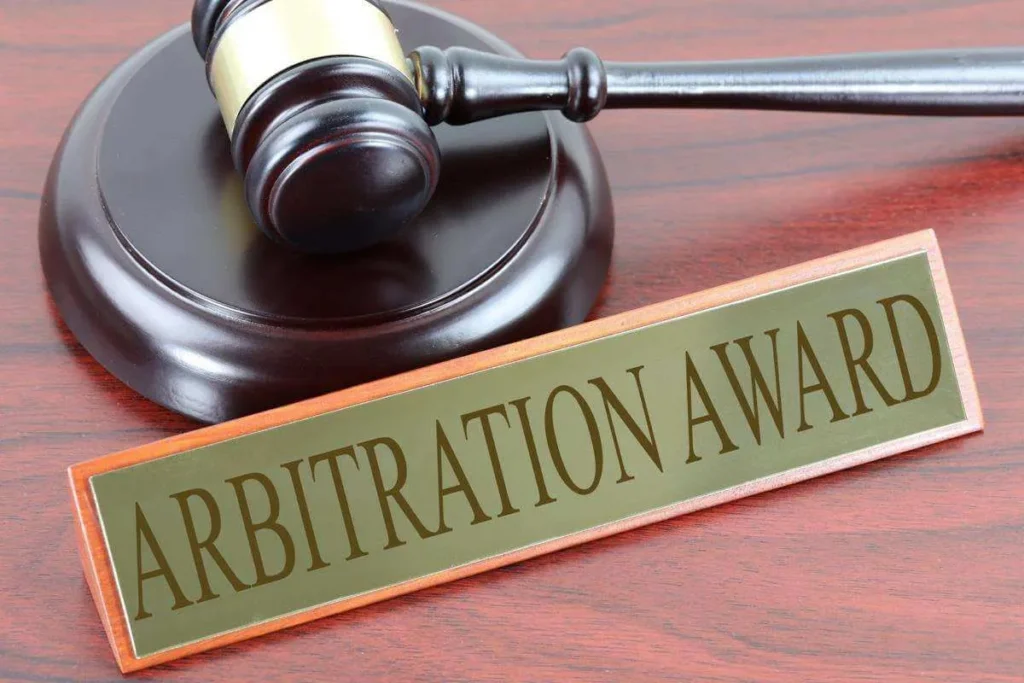
While deciding on a plea on whether there is a possibility of interference with arbitral awards under Sections 34 and 37 of the Arbitration and Conciliation Act, 1996, the Hon’ble Supreme Court emphasized that any attempt to “modify an award” during the adjudication of Sections 34 and 37 petitions is not permitted under the Act.
In the case of ‘S.V. Samudram v. State of Karnataka,’ the Hon’ble Supreme Court’s Division Bench, comprising Justices Abhay S. Oka and Sanjay Karol, while addressing an appeal against the High Court of Karnataka’s judgment and order under Section 37(1) of the Arbitration and Conciliation Act, 1996, framed the following question of law:
“whether the High Court was justified in confirming the order dated 22nd April, 2010 under Section 34 of the Arbitration & Conciliation Act, 1996 passed by the Senior Civil Judge, Sirsi, in Civil Misc. No. 08/2003, whereby the award passed by the learned Arbitrator was modified and the amount awarded was reduced.”
Background
In this instance, the appellant had secured a contract from the Karnataka State Public Works Department to construct the office and residence of the Chief Conservator of Forests at Sirsi, amounting to Rs. 14.86 lakhs. The agreement, made in 1990, specified that the claimant/appellant would receive possession of the construction site. The stipulated completion date for the allotted work was May 6, 1992, allowing 18 months from the agreement date, excluding the monsoon season. However, the claimant couldn’t finish the work, attributing responsibility to the State authorities for not clearing bills at various stages and for delays related to changes in the construction site and material delivery. Consequently, the parties turned to arbitration to settle the dispute. The claimant submitted a claim of Rs. 18,06,439/- to the Arbitrator. While the Arbitrator held the respondents accountable, the Civil Judge modified the arbitral award, leading to the claimant’s dissatisfaction.
While adjudicating the dispute, the Apex Court observed:
“A perusal of the judgment and order of the learned Civil Judge, in the considered view of this Court, does not reflect fidelity to the text of the statute. Nowhere does it stand explained, as to, under which ground(s) mentioned under Section 34 of the A&C Act, did the Court find sufficient reason to intervene. In fact, quite opposite thereto, the Court undertook a re-appreciation of the matter, and upon its own view of the evidence, modified the order.”
The Division bench, referring to the judgment in National Highways Authority of India v. M. Hakeem (2021) 9 SCC 1, observed: “Any court under Section 34 would have no jurisdiction to modify the arbitral award, which at best, given the same to be in conflict with the grounds specified under Section 34.”
The Apex Court also referred to the Judgment delivered in Larsen Air Conditioning and Refrigeration Company v. Union of India and Others 2023 SCC OnLine SC 982, which held that “the circumscribed nature of the exercise of power under Sections 34 and 37, i.e., interference with an arbitral award, is clearly demonstrated by legislative intent. The Arbitration Act of 1940 had a provision (Section 15) which allowed for a court to interfere in awards, however, under the current legislation, that provision has been omitted.”
Furthermore, the Apex Court noted, “The learned Single Judge, similar to the learned Civil Judge under Section 34, appears to have not concerned themselves with the contours of Section 37 of the A&C Act. The impugned judgment reads like a judgment rendered by an appellate court, for whom re-examination of merits is open to be taken as the course of action. … We find the Court to have held the award to be perverse and contrary to public policy. The basis for such a finding being the delay on the part of the contractor in completion of the work which “could have been avoided”. Significantly, as we have observed earlier such a finding is not backed by any material on record.”
To that effect, the Hon’ble Supreme Court granted the appeal, overturned the Civil Judge’s decision, and reinstated the Arbitral award, instructing the State to make the payment promptly.

Pingback: Ex-promoters Submit Resolution Plans? New Delhi NCLAT Ruling Sets Precedent